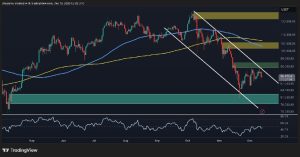Donald Trump’s renewed interest in acquiring Greenland has resurfaced with his announcement of Ken Howery as the prospective US ambassador to Denmark. This ambition, initially expressed during his first term, stems from Trump’s belief that Greenland’s ownership and control are crucial for US national security and global freedom. This assertion, made on Truth Social, connects Greenland’s strategic importance to the broader aim of safeguarding American interests and promoting liberty worldwide. While the specifics of this perceived necessity remain unclear, the statement underscores Trump’s conviction that Greenland plays a pivotal role in achieving these objectives. The nomination of Howery, a co-founder of PayPal, suggests Trump’s intention to have a strong advocate in Denmark to potentially pursue this controversial goal. The timing of the announcement, coupled with the forceful language used, signals a serious intent to revisit this issue should Trump return to the presidency.
The context of Trump’s renewed Greenland ambition is further illuminated by his recent demand for Panama to return control of the Panama Canal to the United States. This demand, met with strong resistance from Panama’s president, reveals a pattern of asserting US dominance over strategically significant territories. Both Greenland and the Panama Canal hold immense geopolitical value, and Trump’s pronouncements indicate a desire to reassert American control over these areas. This approach reflects a worldview prioritizing direct control over key locations as essential for maintaining US power and influence. The parallel between these two instances suggests a broader strategy of reclaiming what Trump perceives as lost American assets or influence.
Trump’s initial pursuit of Greenland in 2019 provides valuable insight into his motivations. His interest at the time was primarily driven by Greenland’s abundant natural resources and its strategic geopolitical location. The island’s vast mineral reserves, including rare earth elements crucial for modern technologies, and its proximity to crucial Arctic shipping routes make it a highly desirable asset in Trump’s view. This perspective reflects a focus on resource acquisition and strategic positioning as key drivers of national power. The previous attempt to purchase Greenland, however, was met with strong opposition from Denmark, which maintains sovereignty over the island despite Greenland’s autonomous self-rule. This historical context underscores the significant challenges Trump faces in realizing his ambition.
The Danish government’s response in 2019 was unequivocal. Prime Minister Mette Frederiksen firmly rejected the notion of Greenland being for sale, emphasizing that Greenland belongs to its people. This rejection highlights the complex relationship between Denmark and Greenland, where the latter enjoys self-governance but remains within the Kingdom of Denmark. Trump’s dismissal of this reality and his subsequent cancellation of a meeting with Frederiksen underscore his unwillingness to acknowledge Greenland’s self-determination and the diplomatic protocols involved. This disregard for existing political structures and international norms adds another layer of complexity to the situation.
The previous attempt to acquire Greenland ultimately failed, and the Biden administration abandoned the idea entirely. However, Trump’s recent statements indicate a clear intention to revive this pursuit if he returns to office. This resurgence of interest suggests that Trump views Greenland as a continuing priority, and his appointment of Howery could be interpreted as a strategic move to lay the groundwork for future negotiations. The fact that he is raising this issue again, despite previous setbacks, demonstrates his persistent belief in the importance of acquiring Greenland for the United States.
The implications of Trump’s renewed interest in Greenland are far-reaching. It raises questions about the future of US-Denmark relations, the potential impact on Greenland’s autonomy, and the broader geopolitical landscape of the Arctic region. The international community will be watching closely to see how this situation unfolds, particularly given the increasing strategic importance of the Arctic in a changing world. Trump’s pronouncements signal a potential shift in US foreign policy towards a more assertive and potentially disruptive approach, with significant consequences for the Arctic region and beyond. The coming months and years will reveal whether this ambition remains rhetorical or translates into concrete action.








